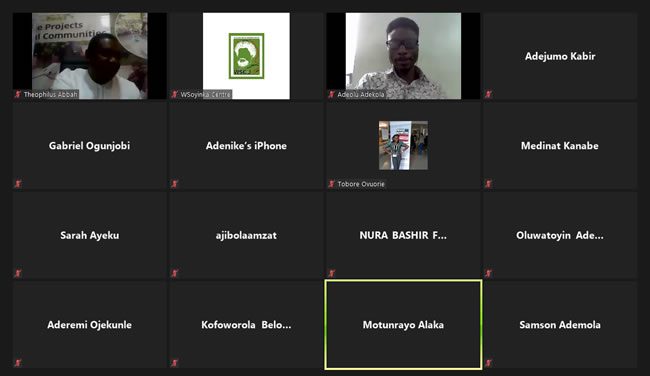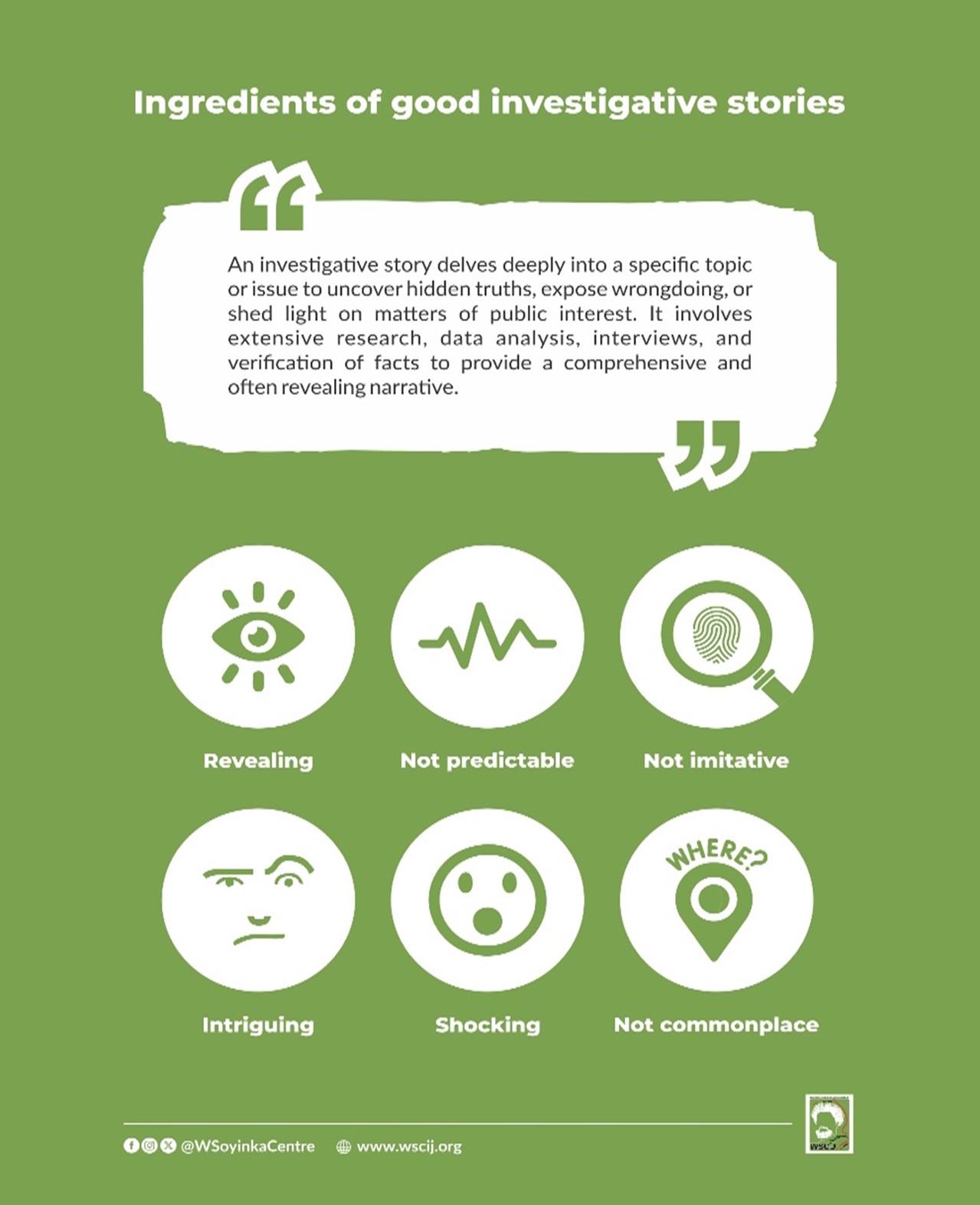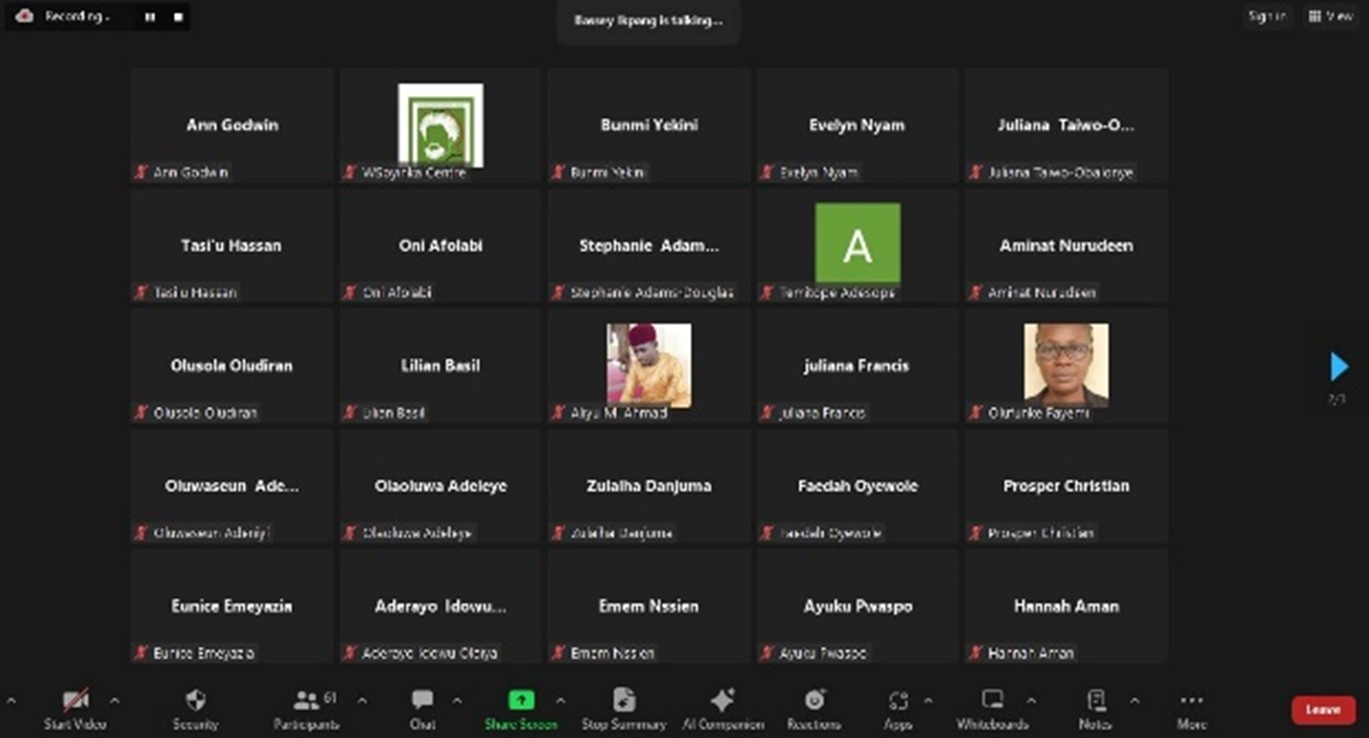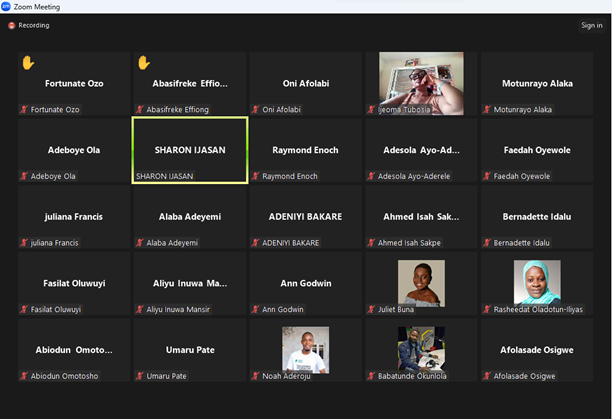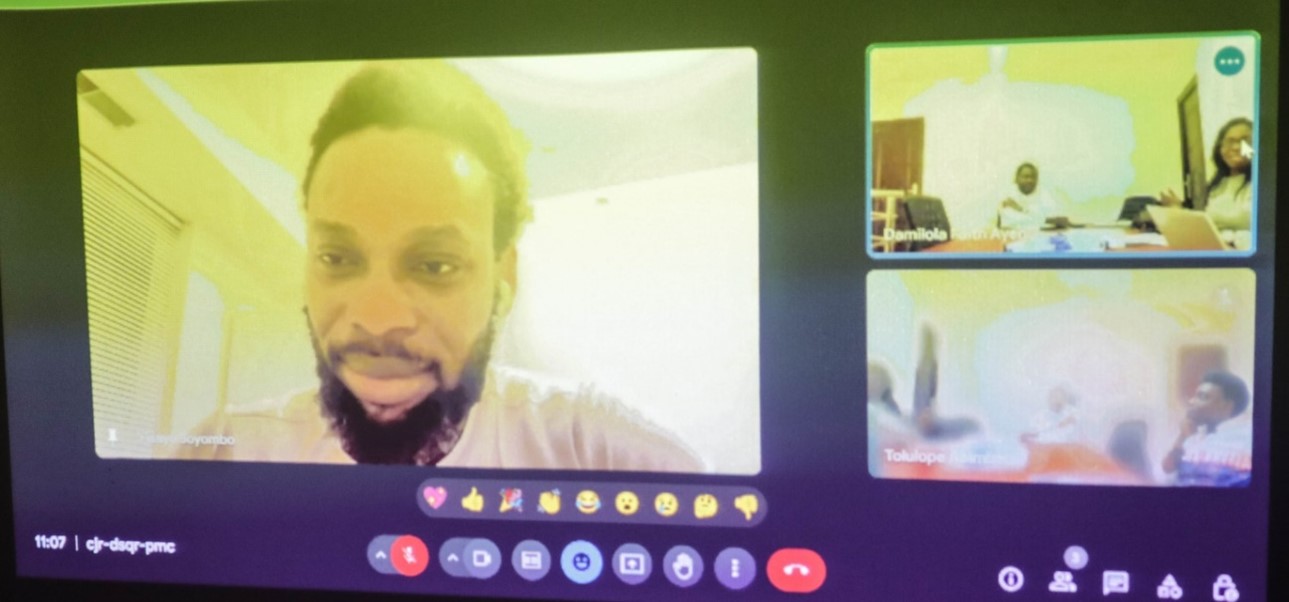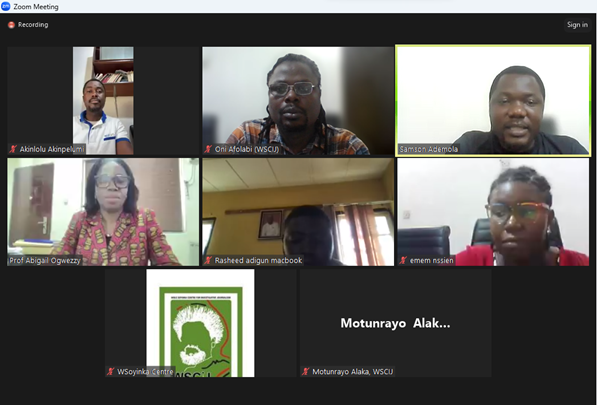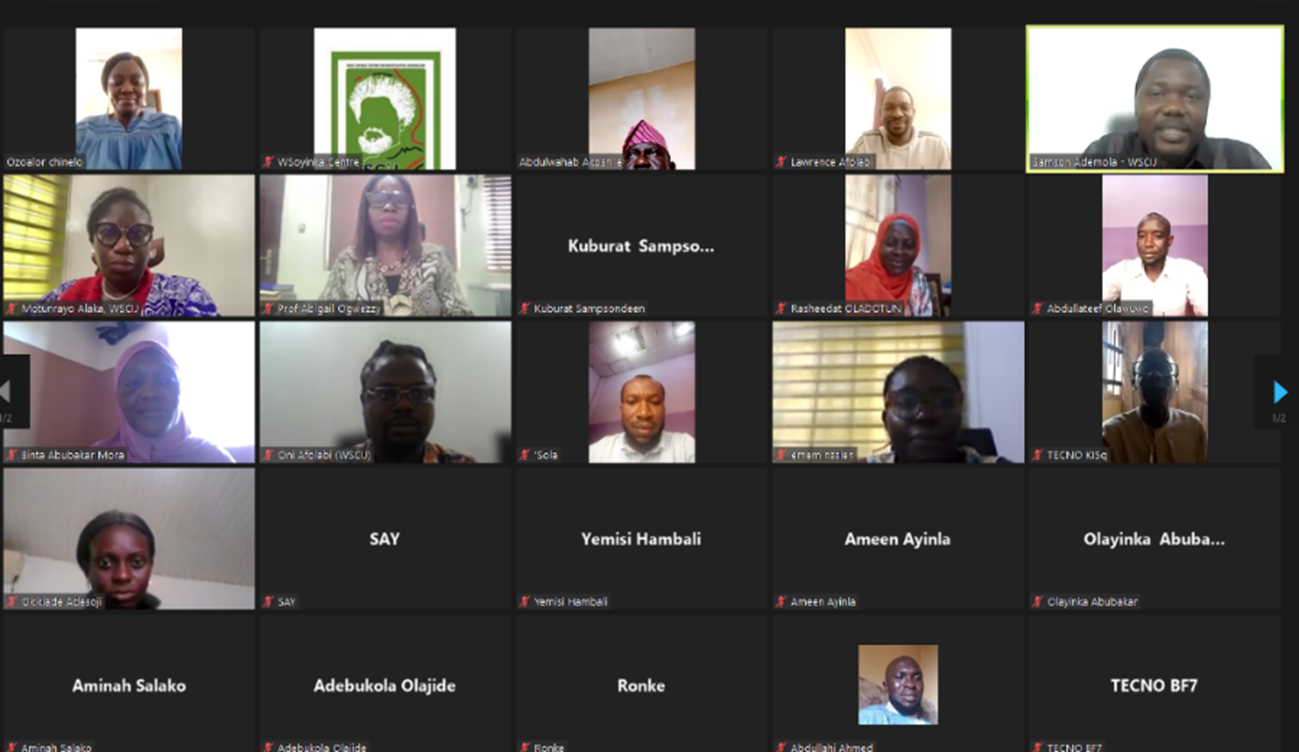The Wole Soyinka Centre for Investigative Journalism (WSCIJ) has on Wednesday, 12 November 2020 commissioned ten additional journalists under its COVID-19 Reality Check project to do in-depth and investigative stories on COVID-19. This brings the number of reporters commissioned under the project to fifty.
The COVID-19 Reality Check project which seeks to examine government interventions and promises in relation to the realities on the ground in terms of social welfare, water and sanitation, economics, security, food availability and accessibility, education, electric power supply, and more. The project has since commencement in April produced a total of 95 impactful reports.
In his introductory remarks, WSCIJ’s Senior Programme Officer, Adeolu Adekola, stated that the story project has been implemented in phases of one month each, the current phase being the fifth. He observed, however, that the uniqueness of the fifth phase is the recommendation of a list of story idea by WSCIJ for reporters to select from. The stories ideas include tracking of COVID-19 emergency contracts, issues around the second wave of the pandemic and border entry, looted palliatives, myths around COVID-19 vaccine, impact of the pandemic on businesses, tracking of CBN’s 50 billion COVID-19 intervention funds for SMEs, and following cash donations received by states among others.
Sharing their thoughts on the selected story ideas, the mentors, Amzat Ajibola, Senior Editor with the International Centre for Investigative Reporting; and Motunrayo Alaka, WSCIJ’s Executive Director, expatiated on the depth and scope the selected topics should cover. Thereafter, there was a breakout session to agree on scope and modalities of implementation between the reporters and their assigned mentors who shared more knowledge and insight on the stories.
In his session, Theophilus Abbah, Director at Daily Trust Foundation, who is also a mentor on the project exposed the participants to safety and security issues in investigative reporting. He advised the participants to be intelligent in their approach, stating that part of security measures is to have an insider who can take them through the inner operations of the institution with the backing of documents and voices. He further advised the reporters to go in pairs for interviews and to secure their editor’s consent before publication.
He stated that an investigative story must expose wrongdoing and stressed the need for an insider whose role will be to explain the inner operations of the subject matter or institution with the backing of documents and voices.
The selected reporters will undergo one-month mentorship during which they will be expected to deliver one in-depth investigative story from their selected story ideas.

